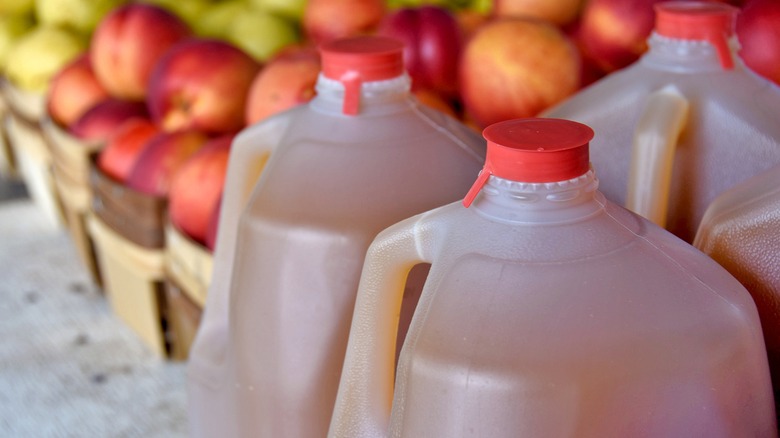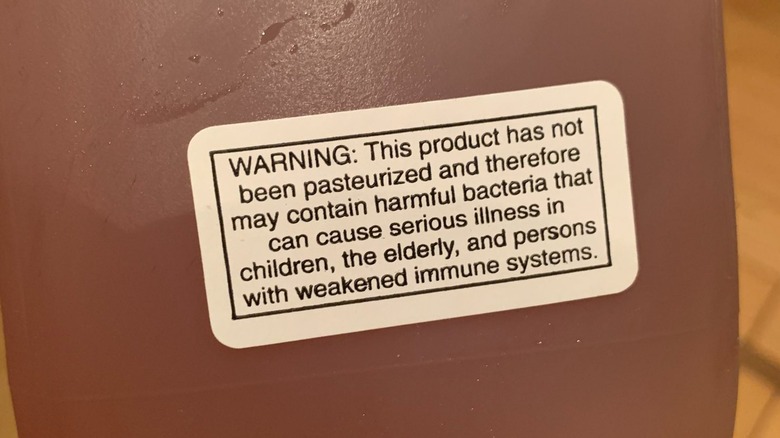Before Buying A Jug Of Apple Cider This Fall, Check The Label
Certain flavors and aromas come hand in hand with fall. Pumpkin spice lattes, cinnamon pastries, and warm apple cider are chief among the tastes many of us expect when the weather starts to cool. However, consuming one of these may come with some serious risks. If you've recently purchased some apple cider, you may want to check the label before you open up the jug.
Some health officials are warning consumers about drinking unpasteurized apple cider, as the idyllic autumn beverage could cause serious foodborne illness. That's because washing the apples before they become cider isn't enough to eliminate potentially dangerous pathogens such as salmonella. To further ensure product safety, dairy products like milk and some juices (including cider and apple juice) are typically heated through pasteurization as a means of killing off any lingering bacteria. Though not all unpasteurized products are guaranteed to make someone ill, the probability of contracting disease increases when consuming untreated juices like unpasteurized apple cider.
In the U.S., the FDA requires that jugs of unpasteurized apple cider must carry a warning label informing customers that the product is untreated and may harbor harmful pathogens. Checking for that label is the best way to ensure you are buying a pasteurized product. In certain locations, untreated apple cider is widely available, making it even more important to check the label before purchasing.
Some apple cider rules do not require pasteurization
Most juices sold in stores are heat-treated to eliminate potentially harmful bacteria, but apple cider is not just sold in the supermarket. Health food stores, farmer's markets, cider mills, and other locations may also sell apple cider. Those entities are not required to pasteurize their product before putting it out for sale. Even some grocery stores are allowed to sell untreated apple cider, so long as the product carries the appropriate warning label.
What's more, this label isn't required for juice that's sold by the glass. The same locations that can sell untreated apple cider by the gallon — with a warning label — may also sell the same product in individual portions — without any label at all. Sometimes, the only way to know if it has been pasteurized is to ask whoever is selling it.
Some foods don't require refrigeration, but if you have apple cider with a label indicating it's unpasteurized, it's important to keep it under constant refrigeration. Some people may still wish to avoid it entirely. While most will recover from a foodborne illness without medical help, the FDA warns that anyone who may be pregnant, those over the age of 65, small children, and folks with compromised immune systems run a higher risk of serious complications due to infection. The best bet is to check the label before purchasing apple cider to ensure it meets your standards for safe consumption.

